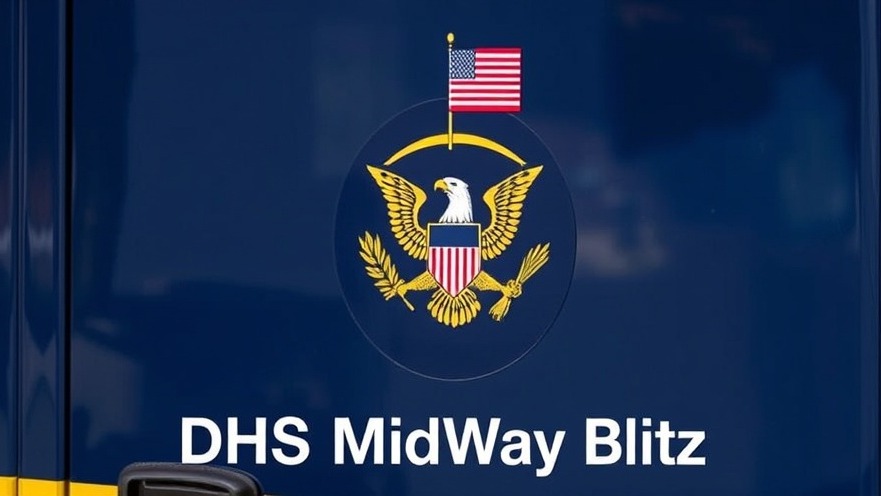
Crackdown on Ice: The Context Behind 'Midway Blitz'
The recently launched ICE operation known as the 'Midway Blitz' in Chicago has ignited a firestorm of reactions from local leaders and communities alike. The crackdown, aimed at apprehending undocumented immigrants in the area, has met with significant pushback from city officials who argue it exacerbates fear and division within neighborhoods. As cities across the nation grapple with immigration enforcement, Chicago serves as a microcosm of the debate over policy, compassion, and community safety.
Local Leaders Respond to Federal Action
As reports of multiple arrests surfaced following the implementation of 'Midway Blitz', local leaders swiftly condemned the action, emphasizing the unanticipated trauma inflicted on families. Chicago Mayor Brandon Johnson and various community activists have urged federal authorities to reconsider such aggressive tactics, arguing they counteract years of efforts to foster trust between immigrants and law enforcement. This pushback is emblematic of the broader national discourse around immigration and enforcement practices.
The Human Impact of Immigration Enforcement
With the increased visibility of ICE operations, there's growing concern for the mental health and wellbeing of immigrant communities. Families experience heightened anxiety and fear, particularly among those who have made Chicago their home. This emotional toll can lead to a significant decline in mental health, impacting children and adults alike. Community leaders are advocating for better support services and outreach for those affected by such crackdowns, highlighting the need for empathy in times of strife.
Historical Context: Shifts in Immigration Policy
The Midway Blitz is not an isolated event; it reflects a historical trend where U.S. immigration policy has swung between strict enforcement and more lenient, humane approaches. In previous years during various administrations, programs aimed at deportation have led to unrest and protests. Analyzing the trajectory of these policies reveals a society in flux, grappling with its identity and values. The implications of these operations extend far beyond the arrests made; they shape public perceptions and the fabric of communities.
Future Predictions: What Lies Ahead?
The trajectory of operations like 'Midway Blitz' seems fraught with tension and uncertainty. As debates over immigration resonate in the upcoming election cycles, a shift toward reform could be imminent. Communities across the nation may seek to rally for more protective measures, advocating for pathways to citizenship rather than fear-driven enforcement. The potential for policy change lies in the hands of local voters and their representatives, making civic engagement more crucial than ever.
Local and National Perspectives Combine
Chicago's response to ICE actions is reflective of a larger national sentiment. Many major cities have echoed similar concerns, leading to coalitions that support immigrant rights. This solidarity is crucial not only for communal stability but also for framing national narratives around inclusivity and justice. As national news coverage amplifies these local voices, the importance of grassroots activism comes to the forefront.
In conclusion, as the 'Midway Blitz' unfolds, it continues to evoke discussions around human rights, community safety, and the ethical implications of immigration enforcement. Readers are encouraged to stay informed on these critical developments, engage in local conversations about policy, and consider advocating for laws that foster inclusivity rather than division.
 Add Element
Add Element  Add Row
Add Row 



Write A Comment